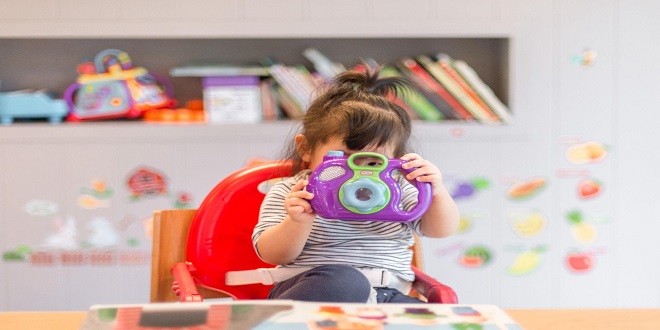Social development is a critical aspect of early childhood education, which encompasses the social, emotional, and cognitive growth of children. The early years are a crucial period for children’s development as they lay the foundation for their future relationships and social interactions. A high-quality day care center, preschool education, and daycare services play a vital role in promoting social development among young children.
In this article, we will discuss seven strategies that can help promote social development in preschoolers and young children. These strategies are based on research and best practices in early childhood education and child development. By implementing these strategies, childcare providers and educators can create a supportive and nurturing environment that fosters positive social interactions, communication, and cooperation among young children.
Strategy 1: Encouraging Positive Social Interactions in Childcare Centers and Daycare Services
Positive social interactions are critical for young children’s social development. A childcare center and daycare services can encourage positive social interactions by creating a supportive and engaging environment. Here are some strategies that childcare providers can use:
- Creating a welcoming atmosphere: Childcare providers can create a warm and welcoming environment that makes children feel comfortable and safe. This can include providing age-appropriate toys, books, and activities that promote social interaction.
- Promoting peer interactions: Childcare providers can facilitate social interactions among children by encouraging group activities, such as storytime, circle time, and music and movement activities.
- Modeling positive social behavior: Childcare providers can model positive social behavior by being kind, respectful, and patient with children. They can also encourage children to use polite language, share toys, and take turns.
- Providing guidance and support: Childcare providers can guide and support children’s social interactions by intervening when necessary and providing gentle reminders about appropriate behavior.
- Encouraging positive reinforcement: This can include acknowledging when children are kind to one another, share toys, or work well together.
Strategy 2: Creating a Safe and Supportive Environment for Social Development in Preschool Education
Creating a safe and supportive day care center environment is crucial for promoting social development in preschool education. Preschool educators can help children feel safe and supported by establishing a predictable routine, providing clear expectations, and creating a positive learning environment. Here are some strategies that preschool educators can use:
- Establishing a predictable routine: Preschool educators can establish a consistent daily routine that helps children feel secure and comfortable. This can include daily schedules that provide structure and predictability to children’s day.
- Providing clear expectations: Preschool educators can set clear expectations for behavior and provide positive reinforcement for positive behavior. This can include using visual cues, such as pictures or charts, to help children understand expectations.
- Creating a positive learning environment: Preschool educators can create an atmosphere that is conducive to learning by using language, tone of voice, and body language that are respectful and supportive. Educators should also be mindful of how they interact with each other in order to foster respect among children.
Strategy 3: Incorporating Social Development into Early Childhood Education Curriculum
Incorporating social development into early childhood education curriculum can help foster social development among young children. Here are some strategies preschool educators can use:
- Integrating activities that promote cooperation and collaboration: Preschool educators can include activities in their curriculum that encourage cooperation and collaboration among children, such as art projects or group games.
- Encouraging communication and language development: Preschool educators can incorporate activities that promote communication and language development, such as storytelling or singing.
- Promoting problem-solving skills: Preschool educators can create opportunities for children to practice problem-solving skills by engaging in role play or cooperative games.
- Creating a learning community: Preschool educators can foster a sense of community among children through activities such as circle time and group discussions. This helps children feel connected to their peers and develop empathy for others.
Strategy 4: Fostering Relationships Between Teachers and Children to Promote Social Development

Fostering positive relationships between teachers and children is an important part of social development. Here are some strategies preschool educators can use to foster positive relationships with children:
- Building trust: Preschool educators can build trust with children by being consistent and supportive. This includes providing praise, encouragement, and recognizing individual strengths and abilities.
- Creating a shared understanding: Preschool educators should strive to create a shared understanding of expectations with children in order to promote positive interactions. This includes clearly communicating rules and expectations as well as explaining the consequences for not following them.
- Encouraging meaningful conversations: Preschool educators can engage in meaningful conversations with children about topics that are relevant to their lives, such as school or family life. This helps develop communication skills and encourages children to think critically about their own experiences.
- Providing emotional support: Preschool educators should be available to provide emotional support when needed. This includes listening to children, validating their feelings, and helping them find solutions to problems.
Strategy 5: Supporting Parents in Promoting Social Development at Home
Parents play an important role in promoting social development among young children. Here are some strategies day care center educators can use to support parents in this process:
- Providing resources: Preschool educators can provide resources for parents on topics related to child development, such as behavior management or age-appropriate activities. This helps parents understand how they can best support their child’s social development.
- Encouraging parent participation in school activities: Preschool educators should encourage parent involvement in school activities. This could include inviting parents to class discussions or field trips. This helps create a sense of community and encourages parent-teacher collaboration.
- Organizing playdates: Preschool educators can organize playdates for children in the classroom, which helps foster positive social interactions among peers. This could include inviting a few classmates over to have fun activities or just to hang out.
Conclusion
Social development is an important part of early childhood education. Preschool educators can promote positive social development by encouraging positive interactions in childcare centers and daycare services, creating a safe and supportive learning environment, incorporating activities that encourage communication and language development, fostering relationships between teachers and children, and supporting parents in promoting social development at home.
Quality child care and early childhood education can help children develop the necessary skills to navigate their environment, form meaningful relationships, and be successful in school. Promoting social development in preschool is an important part of ensuring positive outcomes for young children. With the right strategies in place, preschool educators can ensure that young children have the tools they need to develop strong interpersonal skills for life.





